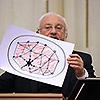“Should We Resist “Election Fatigue”?” (Linkedin)
My new article on Linkedin “Should We Resist “Election Fatigue”?”
On March 23, Israelis will go to the polls for the fourth time in less than two years. There is a saying in Israel that one who votes influences (one’s future and the future of the country). Voter turnout in Israel is similar to that to other democratic countries, but this time, the fourth election in less than two years, many are saying they will pass on the chance to influence. People are fed up, disillusioned, and don’t believe in the system anymore. I think it’s fair to say that people are experiencing what we might call “election fatigue.”
The unity of the nation is, of course, the only value that I see as important. If we have unity, we will resolve all other problems and carry out our obligation as a Jewish nation. However, you can only unite with the living, not with the dead. Therefore, currently, my one and only question when I cast my vote is who will do the best job of protecting Israel from its enemies.
I understand them. I, too, can feel this apathy creeping in. Nevertheless, I think we should not succumb to it. Israel is unlike any other country. There are many issues to resolve here: poverty, inequality, high cost of living, lack of opportunities to the disadvantaged, social rifts around every corner, and countless other problems. However, we will not be able to resolve any of them if we don’t have a country where we can work on them. And because we are under a constant threat of destruction, to me, the sole criterion for choosing who to vote for is security. Israel’s prime minister must be someone who can secure Israel’s existence, and everything else, completely everything, comes next.
The unity of the nation is, of course, the only value that I see as important. If we have unity, we will resolve all other problems and carry out our obligation as a Jewish nation. However, you can only unite with the living, not with the dead. Therefore, currently, my one and only question when I cast my vote is who will do the best job of protecting Israel from its enemies.
I am not saying this from a political perspective whatsoever, but from a spiritual one. In order to perform its role in the world, in order for Israel to set an example of unity and be a light unto nations, it must first of all exist, and second, it must exist in security so it can focus on building unity above the incalculable rifts in the Israeli society. This is why I attribute such importance to security, and this is why it is a spiritual consideration rather than a political one.
Politics aside, I think it is time for the people of Israel to start being what the people of Israel should be—to fulfill its obligation to the world, unite, and set an example of rising above all differences. The ingathering of the exiles has already happened on the physical level. Jews immigrated to the State of Israel from all over the world. Still, internally, we have remained apart. Now we must perform our spiritual task and turn the exiles into one nation, a symbol of union above division. This will be the realization of our vocation, our gift to the world, the best, and indeed only guarantee to our safety and prosperity.
[279616]






 Michael Laitman, On Quora:
Michael Laitman, On Quora:





